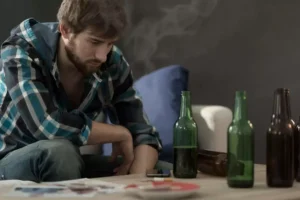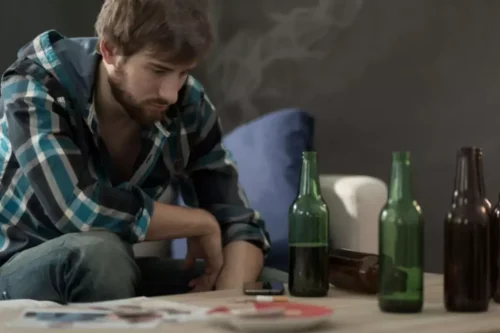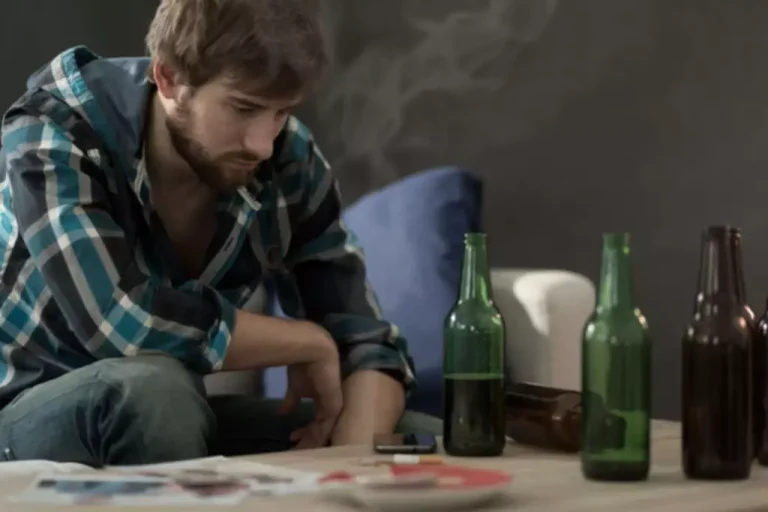
Studies also suggest that frontal lobe systems, critical for impulse control and judgment, are particularly vulnerable to alcohol-related damage, thereby impairing an individual’s ability to resist alcohol dependency. These shared neurobiological mechanisms underscore the need for integrated treatment approaches targeting both conditions simultaneously to prevent relapse and support long-term recovery. Alcoholism and depression share profound neurochemical links, often rooted in disruptions to the brain’s reward and stress regulation systems. Chronic alcohol consumption significantly alters the activity of key neurotransmitters, including dopamine, serotonin, https://ecosoberhouse.com/ and gamma-aminobutyric acid (GABA), which are central to mood and motivation.

You May Develop a Co-Occurring Substance Use Disorder.
However, drinking alcohol to improve your mood can still put you at risk for developing AUD. Over time, you may build up more tolerance to alcohol and need increasing amounts to feel relief from depression. For many people, negative emotions come and go, but for others, sadness does drinking make your depression worse becomes a state of being. If you are feeling sad or low for an extended period of time and it has affected your ability to function, you may be experiencing depression. Another critical brain region affected by chronic alcohol use is the hippocampus, which plays a pivotal role in memory and mood regulation. Alcohol-related shrinkage of the hippocampus has been documented in numerous studies, with findings showing that heavy drinkers are at a higher risk of developing persistent sadness, memory loss, and cognitive decline.
Explaining Sensitization in the Context of Addiction Relapse
D’Alessandro credits therapy for helping him learn more productive coping strategies. He’s also found running works as a great coping strategy that boosts his mood and overall mindset. Lerner developed an alcohol addiction that continued to escalate throughout his teens and early 20s. He participated in several treatment programs at his family’s urging, but none of them helped. “Eventually I realized I might get drunk and act on those suicidal thoughts and that scared me. I decided I would never drink again for the rest of my life,” she says.

Health risks of smoking
- “When my depression is bad, I give myself a break and have a video game day on the couch,” she says.
- Factors that can make depression worse, include stress, sleep disturbance, and unhelpful thinking patterns.
- If you are on antidepressants, you have already sought treatment.
- Similarly, Crum, Brown, Liang, and Eaton (2001) demonstrated that depressed female problem drinkers were twice as likely to become daily drinkers compared with nondepressed female problem drinkers.
These downer effects, some studies suggest, may grow more powerful after an early euphoric peak. This is why you often feel down or anxious the morning after a night’s drinking. Alcohol may make you feel less anxious and improve your mood while you are drinking.
- If you have a mental disorder, like depression, schizophrenia, anxiety, or bipolar disorder, it’s common to have trouble with substances including alcohol.
- It may even be helpful to ask patients to keep a log of their drinking and depressive symptoms to help determine whether there is a temporal association between the two.
- “My relationships, my self-worth, my sleep, and even my overall health and well-being.”
- As someone who lives with depression, you have a greater risk of developing a substance use disorder.
- It’s a vicious pairing that can be difficult to overcome; however, treatment can be effective.
“I used alcohol to cope with feelings of panic, isolation, and sadness.”
According to George Koob, director of the National Institute on Alcohol Abuse and Alcoholism, it is an especially common form of self-medication for depression, perhaps more so than even pop wisdom suggests. It can influence your Alcohol Use Disorder mood and produce feelings of pleasure, motivating you to continue behaviors that make you feel good — like drinking alcohol. Around age 22, Tietz started drinking alcohol — and by the end of that year, she drank alcohol every day.


Alcohol may be a socially acceptable drug, but it’s still a drug. Alcohol abuse and dependence are both considered an alcohol use disorder, with studies finding that alcohol dependence is more closely tied to the persistence of depressive disorders. However, alleviating depression does not resolve the alcohol use disorder. In some cases, you may receive a dual diagnosis of a major depressive disorder (MDD) and an alcohol use disorder (AUD). This co-occurring disorder isn’t uncommon, but it can be difficult to treat.

